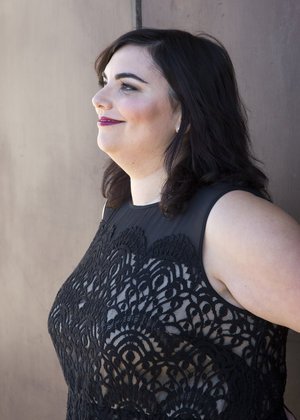Zemlinsky’s World:
Brahms, Berg, Schoenberg, and Korngold
Zemlinsky’s World:
Chamber Series
Allison Voth, Music Director & Piano
Season Sponsor:
Melick & Porter
Season Supporter:
Charles & Nancy Husbands
Friday, November 7, 2025 | 7 PM
Follen Church
Lexington, MA 02420
About the Program
PROGRAM NOTE
This afternoon, we celebrate Zemlinsky as a composer and his beautiful and charming lieder.
Although Zemlinsky was best known for his conducting, he was a fine composer and pianist who was closely linked to the New Viennese School, albeit less innovative than his colleagues. His music embodies a decidedly emotional intensity, beauty and playfulness. He was recognized by the great German composers Johannes Brahms and was a mentor and teacher of Schoenberg, Berg and Korngold. This afternoon we hope to give you a glimpse into Zemlinsky’s world of music and the music of those in his circle.
Zemlinsky was born in Vienna. His father was of Viennese Catholic decent and his mother, of mixed Sephardic-Muslim heritage. His father converted to Judaism a year before Zemlinsky was born and Zemlinsky was raised Jewish, but he converted to Protestantism when he was 28. He was musically gifted from a young age studying piano and playing organ at his Synagogue. After his basic schooling, he enrolled in the Vienna Conservatory where he studied piano with Anton Door, and composition with Robert Fuchs. Door invited Brahms to hear two performances of Zemlinsky’s music: Symphony in D and his String Quintet in D minor. Brahms was so impressed, he recommended Zemlinsky to the publisher N. Simrock. Zemlinsky also won 1st prize in the Beethoven Prize, a competition founded and sponsored by Brahms.
Zemlinksy first met Schoenberg when he conducted his amateur orchestra, Polyhymnia, in which Schoenberg was a cellist. Zemlinsky became Schoenberg’s counterpoint teacher (his only formal theory teacher) and they ultimately became close friends. Some of Schoenberg’s early compositions are dedicated to Zemslinky, including his Op. 1 Lieder. Schoenberg eventually married Zemlinsky’s sister, Mathilde, in 1901, and around this time, Zemlinsky had a passionate affair with Alma Schindler. In the end, she was pointedly cruel to Zemlinsky regarding his physical appearance, and she rejected him in favor of Mahler. Zemlinsky eventually married Ida Guttmann in 1907, but it was an unhappy marriage. She died in 1929. Zemlinsky remarried Luise Sachsel in 1930 a decidedly young woman and long-time singing student of his. They remained happily married until his death.
In 1903 Zemlinsky took a job teaching orchestration at the Schwarzwald school where he taught many well-known composers, including Alban Berg, Anton Webern, and privately, Erich Korngold. During this period, Gustav Mahler recognized Zemlinsky’s talent and premiered his second opera, Es war einmal. Mahler also helped sponsor an organization Schoenberg and Zemlinsky founded called the Vereinigung Schaffender Tonkünstler. This organization promoted new music in Vienna. Zemlinsky was an active conductor from a young age. He was Kapellmeister at two operetta houses, the Carltheater and the Theater an der Wien, chief conductor at the Volksoper (he premiered Strauss’ Salome and Dukas; Ariane et Barbe-Bleue and his own Kleider machen Leute).
In 1911 he was given the post of Musical Director at the Neues Deutsches Theater in Prague. He composed some of his finest works during that period: the Maeterlinck Lieder, the Second Quartet, the Lyrische Symphonie, Eine florentinische Tragödie and the opera Der Zwerg. During Zemlinsky’s years in Prague, his musical assistants were: Kleiber, Webern and Szell, and his chorus master was Viktor Ullman. In 1920, he was appointed rector of the Deutsche Akademie für Music und Bildende Kunst, where he taught composition masterclasses which included Krása. His years in Prague led Zemlinsky to became a champion of Czech music.
Consequently, when he guest conducted, he often featured such composers as Smetana, Janáček and Suk. He was particularly well-known for his opera conducting of Mozart and Strauss. Stravinsky reportedly said that Zemlinsky’s Figaro in Prague was the most satisfying opera performance opera he had ever heard. Zemlinsky conducted the world première of Schoenberg’s Erwartung and he went on to conduct many other cutting edge composers of the time, including Hindemith, Krenek, Schulhoff, Stravinsky and Weill. Despite his secure position in Prague, Zemlinsky attempted to return to Vienna and to gain recognition in Germany. in 1923 Max Schillings offered him the post of Generalmusikdirektor at the Staatsoper in Berlin. He declined the offer due to rising inflation in Germany, a decision he most likely regretted. He returned to Prague, but a new Kapellmeister in Prague created some work challenges, so in 1927 Zemlinsky moved to Berlin, but he was force to take an inferior and subordinate position at the Kroll Oper. He stayed in Berlin, despite being offered more favorable general music director positions elsewhere. As a conductor, he also taught score-reading and chose to expand his guest conducting which took him to France, Italy, Russia and Spain. His busy schedule left him little time to compose.
In 1933, Zemlinsky premièred a new composition Der Kreidekreis after a 6 year composing hiatus, but 1933 proved to be a grim year for many creative artists. Zemlinsky, like so many other Jewish musicians, was forced to leave Germany in 1933. He returned to Vienna and began composing more, but five years later in 1938, he was forced to flee to Prague and ultimately to New York. Unlike Schoenberg and Korngold, who found their niches in teaching and film movie respectively, Zemlinsky struggled to find his musical niche in America. He could not look to Schoenberg for help as their friendship had a falling out in 1933 partly over Schoenberg’s 12 tone compositional shift and due to Schoenberg’s serious return to his Judaism. A debilitating stroke also played a huge role in his demise in America. He had a few moments of recognition, including a nationwide NBC broadcast of his Sinfonietta conducted by Mitropolis, but nothing that lead to a secure position, wide recognition, or a place in the American music scene. The New York Times published his obituary in both America and Europe, but he his death went mostly unnoticed in Europe and was only moderately recognized in America.
— Allison Voth, Chamber Series Music Director
Meet the Chamber Series Music Director
Allison Voth, piano
Allison Voth is an associate professor of music at Boston University’s School of Music, and principal coach at Boston University’s Opera Institute. She widely concertized with Lucine Amara of the Metropolitan Opera. She is widely known as a diction coach in Boston and throughout the U.S. She has worked as diction coach and/or répétiteur with such companies as Opera Boston, Boston Lyric Opera, Emmanuel Music, Chautauqua Opera, Providence Opera, Granite State Opera, the Verismo Opera of New Jersey and Opera North. Festivals include Opera Unlimited, The Florence Vocal Seminar and the Athens Music Festival. Ms. Voth is well recognized for her supertitles, which have been used in both national and international opera productions including Washington Opera, the Chicago Symphony Orchestra, the Barbicon Festival in London, Opera Boston, Palm Beach Opera among many others. For several years she had a unique, ongoing collaboration with John Conklin as supertitle co-writer and designer for Boston Lyric Opera. Since 2023, Ms. Voth has been the pre-performance lecturer for Boston Lyric Opera. As a champion of new music, she has performed and assisted in many premieres with ALEA III, Collage New Music, The New Music Consort, The Group for Contemporary Players and The National Orchestra Association New Music Project. She is a specialist in the music of Paul Bowles and was on the cutting edge of the Paul Bowles revival movement in the 1990’s when she produced and performed in a multi-media production of music and readings entitled Paul Bowles: One Man, Two Minds at Merkin Hall in New York. The EOS Ensemble consequently invited her to participate in its Paul Bowles Festival in New York where she premiered a set of piano preludes. In 2011 as part of the Boston University Fringe Festival, she co-produced and music directed a Paul and Jane Bowles centennial celebration which included a multi-media performance entitled Two Stars in the Desert (also performed at BU’s yearly Incite Festival in New York), as well as a fully staged Boston premiere of his theatre work Yerma. Ms. Voth, recognized for her innovative programming, is the Chamber Series Music Director for the well-known Cantata Singers in Boston. She can be heard on CRI recordings.
Meet the Singers
Erica Brookhyser, mezzo-soprano
Mezzo-soprano, Erica Brookhyser, has performed extensively on operatic stages throughout the US and Europe. Known for her portrayal of Carmen, Brookhyser was the winner of ARTE-TV’s “Open Opera: Who will become Carmen?”—a reality talent-search television show that aired in Germany and France. Her other roles include Suzuki/Madama Butterfly, Brangäne/Tristan und Isolde, Preziosilla/La Forza del Destino, Nicklausse-Muse/Tales of Hoffmann, Didon/Les Troyens, and Lola/Cavalleria Rusticana.
As a concert soloist she has performed Das Lied von der Erde and Wesendonck Lieder with Orchester Staatstheater Darmstadt under the baton of Elias Grandy, Mahler’s Rückert Lieder with the Newport Symphony Orchestra conducted by Adam Flatt, and Bach St. Matthew Passion and Mozart Mass in C-minor with the Cincinnati May Festival conducted by James Conlon.
Kamil Ekinci, baritone
Kamil Ekinci is a bass-baritone, who has recently sung with the Boston Lyric Opera Chorus, Tanglewood Festival Chorus and Cantata Singers. He is currently studying vocal performance in the College of Fine Arts at Boston University. Kamil is also a Professor in the College of Engineering at Boston University. He completed his undergraduate degrees in Physics and Electrical Engineering in Turkey, and subsequently obtained a Ph.D. in Physics from Brown University
Joshua Glassman, tenor
Joshua Glassman is a tenor, conductor, educator, and arts administrator whose career spans performance, teaching, and organizational leadership.
As a performer, he appears regularly with Boston’s Cantata Singers and Nightingale Vocal Ensemble and has sung as a soloist with the Grace Church Choral Society, Jupiter Symphony Chamber Players, and the Princeton Festival Baroque Chorus. His stage work includes both new and established repertoire, highlighted by the American premiere of Jonathan Dove’s Mansfield Park and performances with the opera companies of Detroit, Baltimore, and Philadelphia.
Alongside his performing career, Joshua has more than a decade of experience in education and choral leadership at both the secondary and collegiate levels. He previously directed the University of Pennsylvania Glee Club and House Music Philadelphia and now serves as Artistic and Executive Director of the Otter Creek Music Festival in Vermont.
Joshua holds degrees from the University of Michigan (BM, Vocal Performance and Music Education) and the Peabody Institute of Johns Hopkins University (MM, Vocal Performance).
Lisa Lynch , soprano
Soprano Lisa Lynch is known for her exceptional interpretations of contemporary music as well as traditional repertoire. She has been a member of Cantata Singers since 2004, and has performed numerous times as a soloist with the group, in works including Bach’s St. Matthew Passion and Magnificat, Zelenka’s Te Deum, Monteverdi’s Vespers, and in the role of Nora in Vaughan Williams’ Riders to the Sea.
Lisa has presented multiple world premieres, including the soprano solo in John Harbison’s The Supper at Emmaus with Cantata Singers, and Jason Sabol’s microtonal work for soprano and string quartet, Cantico delle creature. Lisa also co-founded the Libella Quartet, with whom she has appeared at WGBH. She has performed in recital throughout New England, and has sung with ensembles including Alea III, Boston Microtonal Society, Harvard Early Music Society, and Cappella Clausura. Additionally, she has appeared as a soloist at the Quito Cathedral in Ecuador with the University of Connecticut’s Collegium Musicum.
Lisa holds a DMA from the University of Connecticut, an MM from New England Conservatory, and a BM from the Eastman School of Music. She is on the faculty of the Corwin-Russell School, where she teaches English and music to neurodiverse students. She also has taught at Clark University, Eastern Connecticut State University, and the Brookline Music School.
Kay Patterson, soprano
Kay Patterson is a classical soprano based in Boston. Equally comfortable on operatic and concert stages, with a specialty in early music, Patterson has been praised as being a "delight" (Boston Musical Intelligencer) and hailed as "a soulful highlight" (Boston Classical Review). She currently performs with Boston Lyric Opera, Odyssey Opera, Emmanuel Music and the Cantata Singers. Past engagements include appearances with Boston Ballet, Connecticut Early Music Festival, Boston Modern Orchestra Project, Andover Choral Society, North End Music & Performing Arts Center, Opera Providence, Masterworks Chorale and Back Bay Chorale. She is also creator and host of the YouTube channel, The Organized Soprano which produces short films about home organizing, homemaking, and life as a classical singer. Her home organizing advice has appeared in publications, daytime television and conferences including Better Homes & Gardens, Consumer Reports, Real Simple, The Wall Street Journal & BuzzFeed. www.theorganizedsoprano.com
Danielle Pribyl, soprano
Danielle Pribyl is a young, up-and-coming soprano from San Clemente, California. Currently based in Boston, she completed her Masters Degree under the tutelage of Dr. Lynn Eustis at Boston University. Danielle made her international debut as Zerlina in the Stavoské Divadlo in Prague in July of 2022. Since her time at BU, Danielle has performed in the greater Boston area with Harvard’s Music and Theatre program, West End Lyric, Boston Opera Collaborative, Somerville Family Opera, White Snake Opera, Boston Ballet, Olde Towne Carolers, Ted and Togo Productions and Cantata Singers. She is the main call cantor and sole soprano section leader for St.Paul’s Parish in Harvard Square. Outside of music she has performed in plays and historical interpretation in the greater Boston area and has been featured dancing with Boston Ballet. In 2022-2023, Danielle was a Studio Artist with Mystic Side Opera in Malden. See her website www.daniellepribyl.com to see what she is up to this season!
Felicity Salmon, soprano
Soprano Felicity Salmon has been praised for her “brightly focused” sound and her ability to perform with “just enough passion and innocence to walk the line between humanity and divinity” (Boston Musical Intelligencer). A versatile artist with a love for collaborative storytelling, she has been a member of Cantata Singers since 2013, frequently appearing as a soloist in both the Concert and Chamber Series. Her repertoire spans from early music to contemporary works, always grounded in emotional nuance and clarity.
In addition to performing, Ms. Salmon serves as Music Program and Concert Manager at Wellesley College, where she oversees the planning and execution of over 70 events annually. Her work supports student and faculty performances, guest artist residencies, and interdisciplinary projects, fostering a vibrant and inclusive musical community on campus.
A dedicated educator and arts advocate, she taught privately for nearly a decade and was a longtime teaching artist with the Classroom Cantatas program, guiding Boston Public School students in songwriting and performance. She currently serves as the Chorus Manager for Cantata Singers and is a former president of the chorus.
In all aspects of her work, Ms. Salmon values collaboration, thoughtful preparation, and connecting people through music.
Jennifer Webb, mezzo-soprano
Mezzo-soprano Jennifer Webb appears regularly as a soloist and chorister in the Boston area. She joined Cantata Singers in 2011 and has been featured as a soloist with the ensemble on many occasions, including Mendelssohn’s Elijah, Bach cantatas, the Magnificat and B Minor Mass, Handel’s Israel in Egypt and Solomon, the world premiere of Peter Child's Lamentations, and Osvaldo Golijov’s Oceana. Other notable performances include Hildegard von Bingen’sOrdo Virtutum and the first staged performance of Elena Ruehr’s Cassandra In the Temples with Cappella Clausura, and Handel's Esther and Alexander's Feast with the King's Chapel choir. Ms. Webb has worked with composer Larry Thomas Bell on several recent projects including the premiere of his song cycle Parables of Love and Death. She appears on his album Thoughts and Prayers from Albany Records. For more, visit www.jenniferrachelwebb.com.











